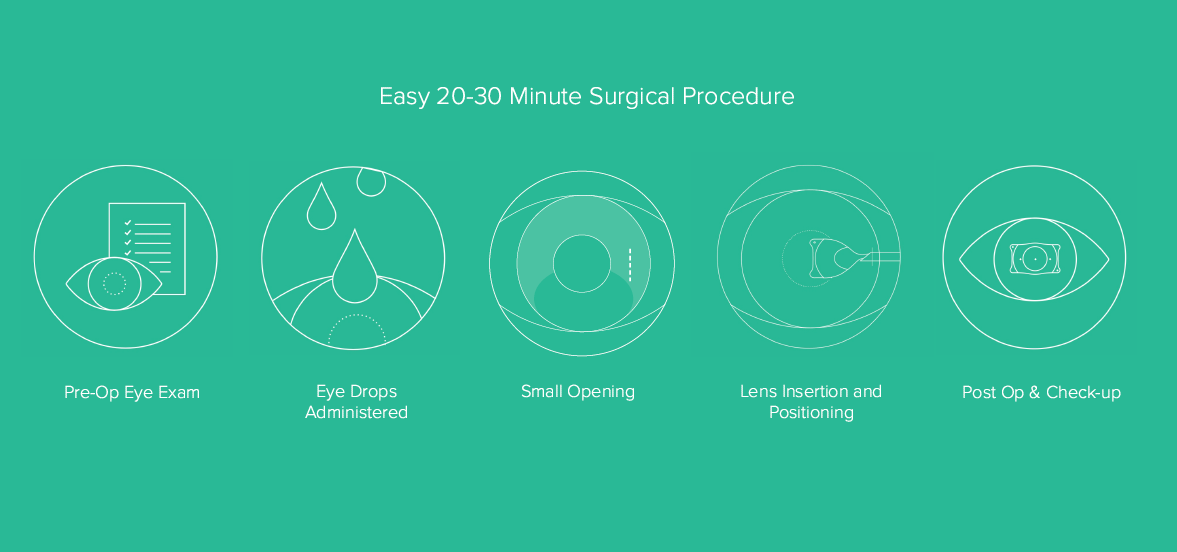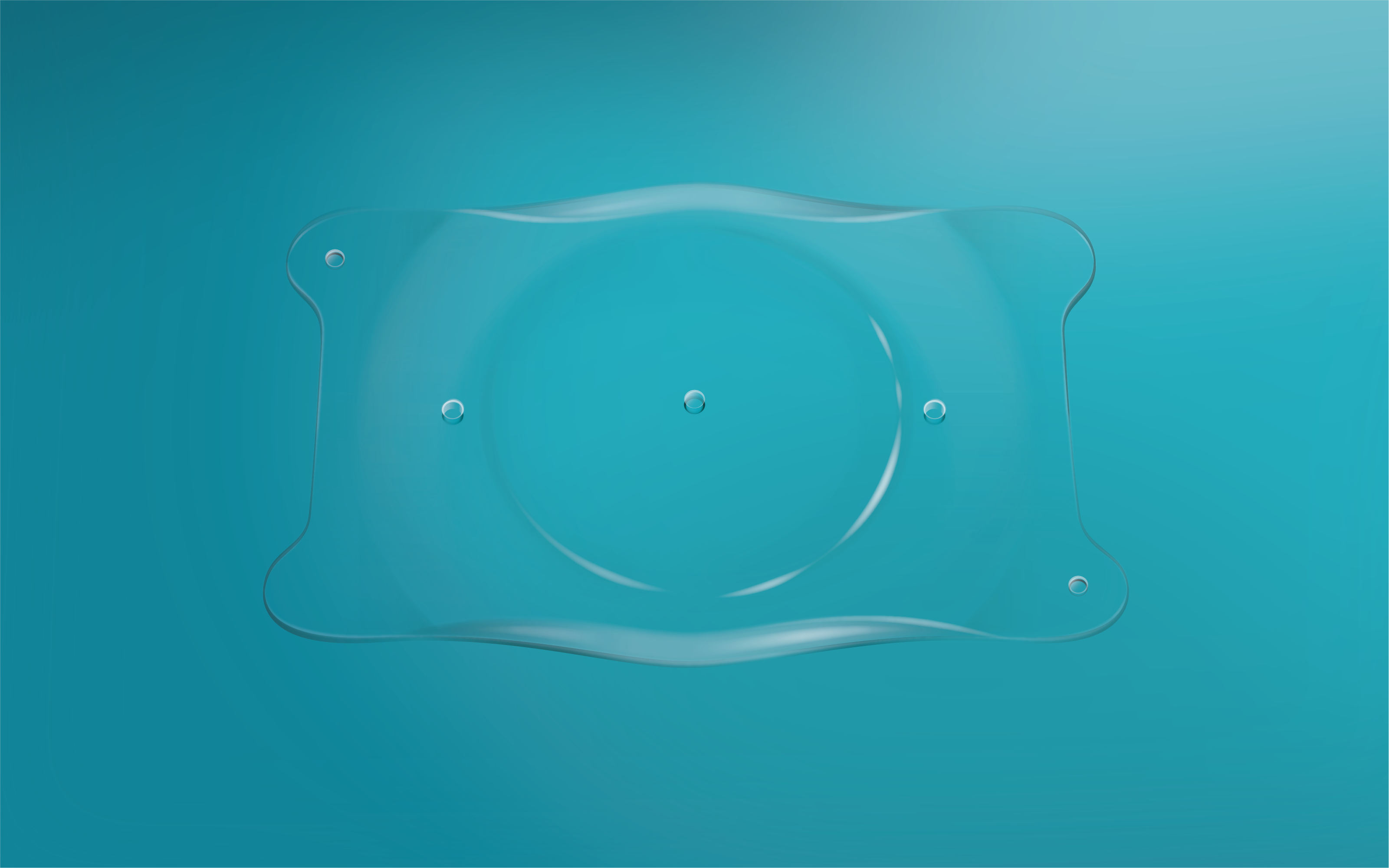What is the EVO ICL Lens?
EVO ICL is an Implantable Collamer™ Lens that corrects common vision problems such as nearsightedness (myopia) and astigmatism. Collamer is a biocompatible material that works in harmony with the eye. The lens, which is slightly smaller than a typical contact lens, is implanted in the eye during a 20 to 30 minute procedure. Unlike laser vision correction surgeries that permanently change the shape of your cornea, the EVO ICL procedure is additive, meaning that no corneal tissue is removed. Worldwide, more than 1 million EVO ICL lenses have been implanted.
Who is a Candidate for Vision Correction with EVO ICL?
People who want a flexible and biocompatible vision correction option, as well as many patients who are not candidates for laser vision correction, find that EVO ICL is the right procedure for them.
Ideal candidates for EVO ICL:
- Are between the ages of 21 and 45
- Are seeking a vision correction solution for moderate to severe nearsightedness (with or without astigmatism)
- Have a stable prescription that has not changed within the last year
- Have good ocular health with no history of glaucoma, iritis, or diabetic eye disease
How is the EVO ICL Lens Procedure Performed?
Vision correction with the EVO ICL is an outpatient procedure that typically takes 20 to 30 minutes. After an initial exam with your ophthalmologist to determine that the EVO ICL is right for you, you will schedule your procedure. On the day of the procedure, your eyes will be numbed with an anesthetic eye drop and your refractive surgeon will implant the ICL between the iris (colored part of the eye) and the natural lens. Your surgeon will likely schedule a follow-up appointment the same day as the procedure.
Can the EVO ICL Lens be Removed?
Yes; the EVO ICL is intended to provide permanent vision correction, but it can be removed or upgraded by your surgeon.
Will I be able to feel the EVO ICL Lens?
No, patients should not feel the lens as it does not adhere to any structures within the eye and does not move once in place.
Will other people be able to see the EVO ICL Lens?
No, the EVO ICL lens is placed behind your iris where only your eye doctor will be able to detect it.
Are there any risks with the EVO ICL Procedure?
Any medical procedure has certain risks associated with it. Potential complications of the EVO ICL procedure, although rare, include inflammation, an increase in eye pressure, or the need for an additional procedure, like an ICL exchange. While these potential risks are mitigated as much as possible, they can all typically be addressed early and without long-term side effects.
Important Safety Information
The EVO ICL lens is intended to correct/reduce nearsightedness between -3.0 D up to -20.0 D and treat astigmatism from 1.0 D to 4.0 D. If you have nearsightedness within these ranges, EVO ICL surgery may improve your distance vision without eyeglasses or contact lenses. Because the EVO ICL corrects for distance vision, it does not eliminate the need for reading glasses, you may require them at some point, even if you have never worn them before. Since implantation of the EVO ICL is a surgical procedure, before considering EVO ICL surgery you should have a complete eye examination and talk with your eye care professional about EVO ICL surgery, especially the potential benefits, risks, and complications. You should discuss the time needed for healing after surgery. Complications, although rare, may include need for additional surgical procedures, inflammation, loss of cells from the back surface of the cornea, increase in eye pressure, and cataracts. You should NOT have EVO ICL surgery if your doctor determines that 1) the shape of your eye is not appropriate, 2) you do not meet the minimum endothelial cell density for your age at the time of implantation, 3) you have moderate to severe glaucoma, 4) your vision is not stable; or 5) if you are pregnant or nursing.
For additional information with potential benefits, risks and complications please visit DiscoverICL.com





